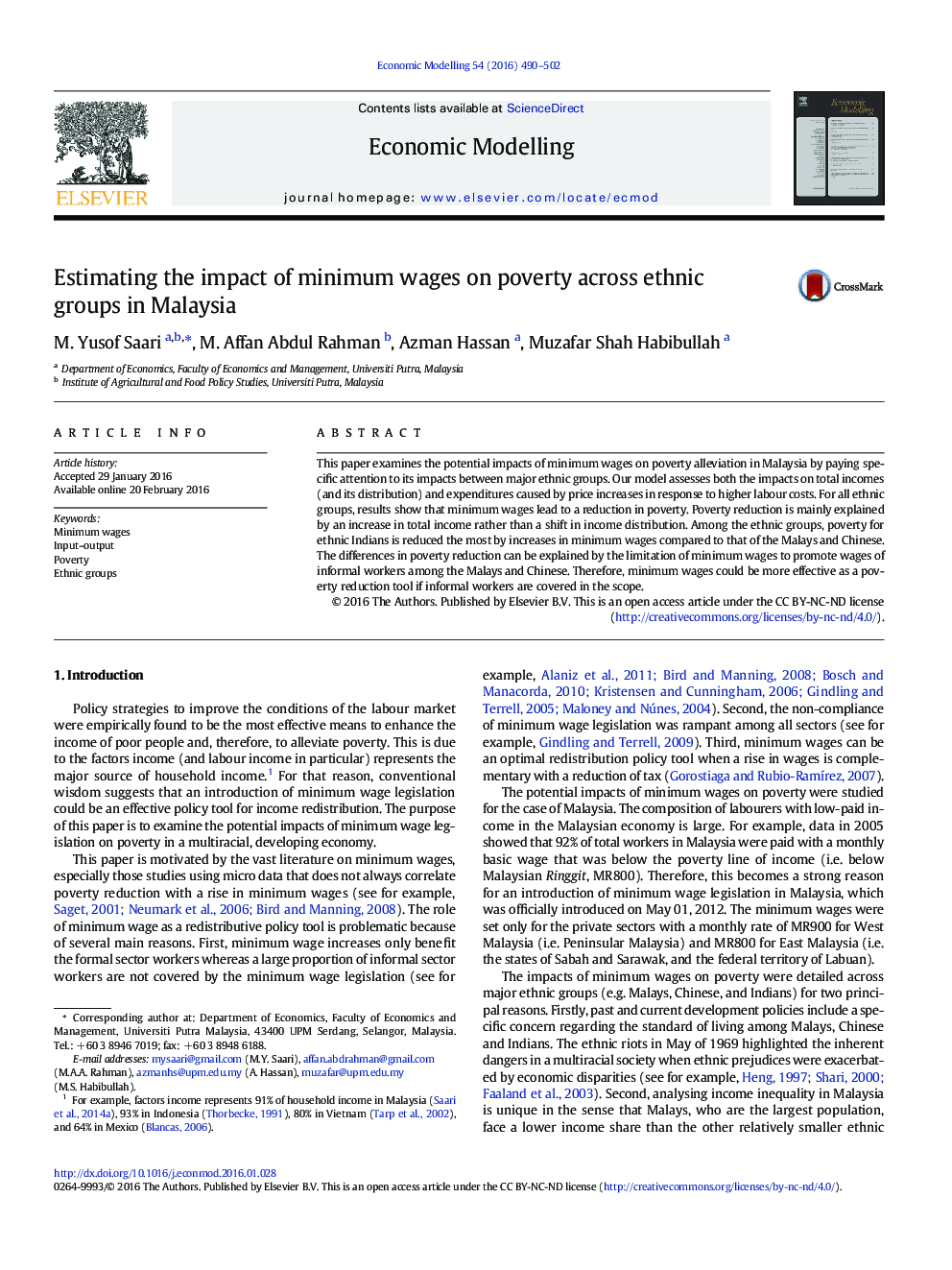| Article ID | Journal | Published Year | Pages | File Type |
|---|---|---|---|---|
| 5053409 | Economic Modelling | 2016 | 13 Pages |
â¢Minimum wages entail more expenditure costs than additional earningsâ¢Minimum wages reduce poverty for all groups with ethnic Indians benefitting mostâ¢Poverty reduction is driven by income growth rather than distributional changeâ¢Exclusion of informal workers from the scope of minimum wages limits its impacts
This paper examines the potential impacts of minimum wages on poverty alleviation in Malaysia by paying specific attention to its impacts between major ethnic groups. Our model assesses both the impacts on total incomes (and its distribution) and expenditures caused by price increases in response to higher labour costs. For all ethnic groups, results show that minimum wages lead to a reduction in poverty. Poverty reduction is mainly explained by an increase in total income rather than a shift in income distribution. Among the ethnic groups, poverty for ethnic Indians is reduced the most by increases in minimum wages compared to that of the Malays and Chinese. The differences in poverty reduction can be explained by the limitation of minimum wages to promote wages of informal workers among the Malays and Chinese. Therefore, minimum wages could be more effective as a poverty reduction tool if informal workers are covered in the scope.
